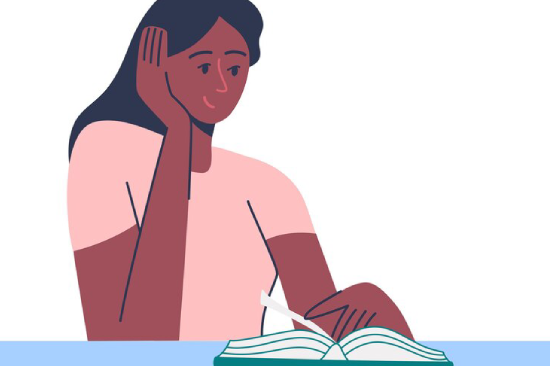To Kill a Mockingbird: Jem Finch’s Character Analysis
Jem Finch is one of the key characters in the novel “To Kill a Mockingbird” by Harper Lee. Known for his honesty and responsibility, he is the older brother of the main character Scat. Jem goes through an important phase of his own growth under the influence of his father and events in the small town of Maycomb. He witnesses injustice and racism when his father, Atticus Finch, undertakes to defend the African-American Tom Robinson in court. These events change Jem’s worldview, making him more self-aware and teaching him the value aspects of justice and dignity. Jem also demonstrates the power of friendship, especially in his relationship with Deal. The important point is how he reacts to injustice and learns from his father to be fair and courageous in his convictions. All these aspects make Jem Finch a unique and memorable character in the novel.

Jem Finch’s Character
Jeremy Finch is Scout’s brother and the eldest child of Atticus Finch. He is 11 years old when the story begins, and 13 years old when the story ends. Jem was a kind, passionate boy who loved his little brother very much. He is also very close to his father, Atticus, and takes lessons in justice from him. Jem plays an important role in this novel because he is an example of how young people can learn about justice and tolerance through their own observations. He is also an example of how one can remain firm in a difficult situation. Although Jem initially disapproves of his father’s dealings with the problem of racism in the town of Maycomb, he eventually learns the values of justice his father taught him. This is reflected in the way he respects Tom Robinson even though he disagrees with the judge’s decision involving Tom. As Jem grew up, he also began to pay attention to other social problems in the city of Maycomb such as gender and economic inequality. This is reflected in the way he talks about Boo Radley and how the people of the town act on each other to make Boo’s life easier. In this novel, Jem is an example of how someone can learn the values of justice and tolerance through their own observations. He is also an example of how someone can remain firm in a difficult situation and pay attention to other social problems in their environment.
Need help WRITING RESUMES?
Just submit your requirements and choose a resume writer. That’s all we need to write a winning resume for you.
Short summary
This novel tells about the life of Scout and Jem in Maycomb, which is filled with racism and discrimination. They both befriend Dill Harris, a boy who lives in their neighbour’s house. Together, they go on various adventures and explorations. This novel also tells about how Atticus Finch defends Tom Robinson, an African-American man who is accused of raping Mayella Ewell. Even though Atticus knows that Tom is innocent, he still has to fight against the racism and discrimination that exists in the Maycomb community. At the end of the novel, Scout learns about tolerance and human rights after she witnesses how her father defends Tom Robinson even though everyone else in town is against him.

Atticus became a hero to his children because he was a man of courage and morality. He stood up for Tom Robinson, a black man accused of a crime he didn’t commit. Even though Atticus knows he will lose in court, he fights for Tom’s rights anyway. This inspires Scout and Jem to respect others and stand up for what is right. Atticus also teaches his children moral lessons about tolerance and empathy. He taught them not to judge others just because of their background or their social status. He also taught them the importance of showing respect for everyone, including Boo Radley. Ultimately, Atticus is an example to his children of the good and moral way of life. Atticus uses his legal skills to help Tom Robinson, but he also uses his intelligence to teach Scout and Jem about human rights and how one should treat everyone fairly. He set a good example by being respectful towards everyone, regardless of their race or social background. In this way, Atticus taught his children the importance of tolerance and equality in society.
Jem Finch Character Analysis
Jem Finch, a central character in Harper Lee’s “To Kill a Mockingbird,” undergoes significant growth and development throughout the novel. As the older brother of Scout, the protagonist, Jem is initially portrayed as a typical, adventurous boy living in the racially charged town of Maycomb. However, several key experiences shape his character.
One of the most influential factors in Jem’s development is his father, Atticus Finch. As a principled and morally upright lawyer, Atticus instills in Jem a strong sense of justice and fairness. Jem witnesses his father’s unwavering commitment to defending Tom Robinson, an African American wrongly accused of assaulting a white woman. This trial becomes a pivotal moment, exposing Jem to the harsh realities of racial injustice and inequality.
The racial tension prevalent in Maycomb challenges Jem’s innocence and forces him to confront the prejudices deeply ingrained in society. This experience marks a turning point for Jem, prompting him to question the fairness of the world around him and challenging his perceptions of right and wrong.
Jem’s friendship with Dill Harris and his sister Scout is also integral to his character. The trio embarks on adventures, including their fascination with the mysterious Boo Radley. Jem’s evolving understanding of Boo reflects his maturation, as he transitions from viewing Boo as a source of entertainment to empathizing with him as a misunderstood and oppressed individual.
Despite the challenges, Jem exhibits resilience and courage. He becomes a protective older brother, particularly in instances where Scout faces adversity. Jem’s character encapsulates the novel’s overarching themes of morality, empathy, and the struggle against societal prejudice.
In the end, Jem’s character arc encapsulates the loss of innocence that occurs when confronted with the harsh realities of the world. Through the lens of Jem’s experiences, “To Kill a Mockingbird” offers a poignant exploration of morality, racial injustice, and the complexities of human nature.
Character roles and their impact
In “To Kill a Mockingbird,” each character plays a distinctive role, contributing to the overall impact and themes of the novel. Here are some key character roles and their respective impacts:
Atticus Finch:
Role: Atticus serves as the moral compass of the novel. As a single father and a principled lawyer, he embodies moral integrity and represents justice.
Impact: Atticus’s role impacts the novel by highlighting the moral struggles in a racially divided society. His defense of Tom Robinson exposes the deep-seated racism within Maycomb, challenging societal norms and inspiring his children to develop a strong sense of morality.
Scout Finch:
Role: The narrator and protagonist, Scout represents innocence and childhood curiosity. Through her eyes, the reader gains insight into the complexities of the adult world.
Impact: Scout’s perspective allows the exploration of themes such as racial prejudice and moral growth. Her evolving understanding of the world mirrors the broader societal changes in Maycomb.
Jem Finch:
Role: Jem, Scout’s older brother, symbolizes the transition from childhood to adolescence. His experiences, particularly during Tom Robinson’s trial, mark a crucial stage in his maturation.
Impact: Jem’s character contributes to the exploration of racial injustice and morality. His growth reflects the novel’s central theme of loss of innocence and the harsh realities of the world.
Boo Radley:
Role: Boo Radley is the mysterious recluse who becomes a subject of fascination for Scout, Jem, and Dill. He symbolizes the unknown and challenges societal judgments based on appearances.
Impact: Boo’s role adds depth to the novel’s exploration of prejudice and compassion. His acts of kindness toward the children reveal the disparity between appearance and reality, emphasizing the novel’s theme of empathy.
Calpurnia:
Role: Calpurnia, the Finch family’s housekeeper, bridges the gap between the Finch children and the African American community in Maycomb.
Impact: Calpurnia’s character highlights the racial dynamics of the town. Through her, the novel explores the complexities of race, class, and the blurred lines between societal roles.
Tom Robinson:
Role: Tom Robinson is a black man falsely accused of raping a white woman, representing the pervasive racial injustice in Maycomb.
Impact: Tom’s unjust trial and conviction serve as a powerful commentary on racial prejudice. His character underscores the systemic discrimination prevalent in the legal and social systems.
Each character’s role in “To Kill a Mockingbird” contributes to the novel’s impact by addressing themes of morality, racial injustice, empathy, and the loss of innocence. Together, they form a nuanced portrayal of a society grappling with its deeply rooted prejudices.
